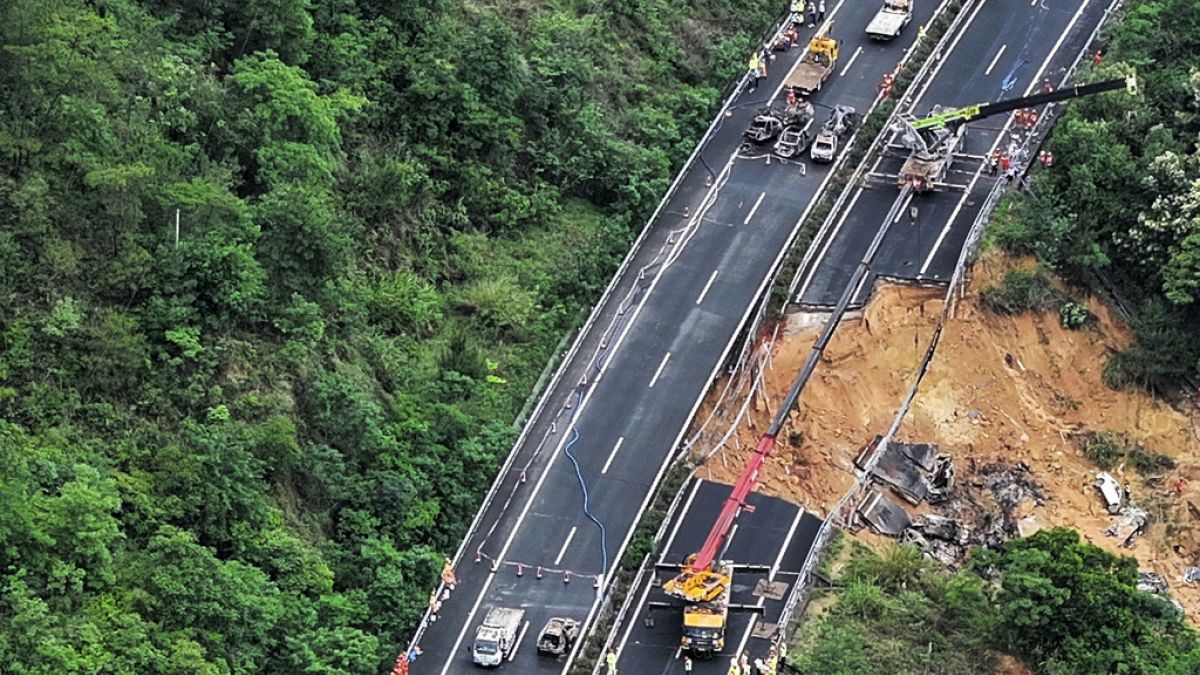The collapse occurred around 5:30 a.m. on Thursday in Guangdong province, a major manufacturing hub in southern China. The incident happened on the Guangzhou-Qingyuan expressway, a major artery in the region. Images from the scene showed a large crater in the road, with several vehicles trapped in the rubble. Rescue teams were dispatched to the site to search for survivors and clear the debris.
Authorities are investigating the cause of the collapse, but initial reports suggest that heavy rains may have weakened the soil underneath the highway, leading to the collapse. The incident highlights the challenges of maintaining infrastructure in a country prone to heavy rains and flooding. China has seen a string of infrastructure failures in recent years, raising questions about the quality of construction and maintenance in the country.
The collapse of the highway has raised concerns about the safety of other infrastructure projects in the region. China has invested heavily in infrastructure in recent years as part of its economic development plans, but questions remain about the quality and safety of some of these projects. The collapse is likely to renew calls for greater oversight and regulation of construction projects in the country.
The incident is a tragic reminder of the dangers posed by heavy rains and natural disasters in China. The country is prone to flooding, landslides, and other weather-related disasters, which can cause widespread damage and loss of life. In recent years, China has made efforts to improve its disaster preparedness and response capabilities, but incidents like the highway collapse serve as a stark reminder of the challenges that the country faces.
The collapse of the highway has also raised questions about the impact of climate change on infrastructure in China. The country has experienced more frequent and intense weather events in recent years, which can put additional stress on infrastructure systems. As China continues to develop and urbanize, it will be important for the government to prioritize climate resilience and invest in infrastructure that can withstand the impacts of a changing climate.
Overall, the collapse of the highway in southern China is a tragic reminder of the risks posed by natural disasters and the importance of maintaining and upgrading infrastructure to ensure public safety. The incident serves as a wake-up call for authorities to prioritize safety and oversight in construction projects and to consider the impacts of climate change on infrastructure planning. It is essential for China to learn from this incident and take steps to prevent similar tragedies in the future.









